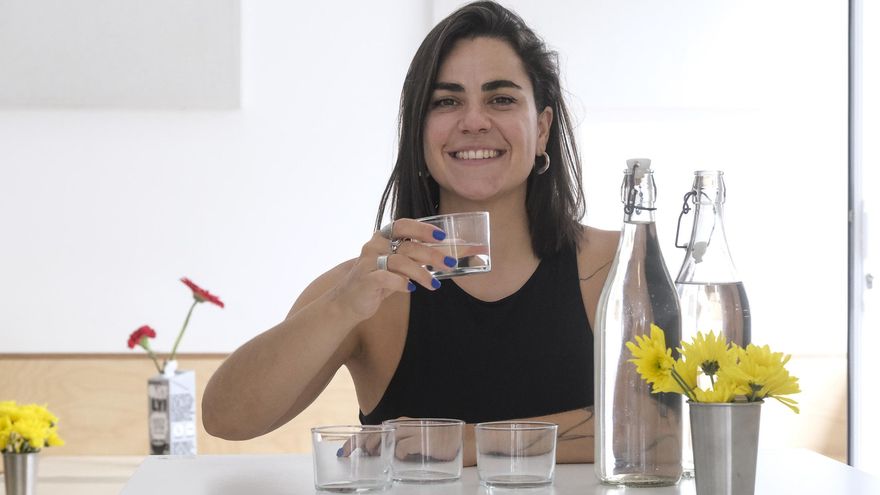The Invisible Ingredient That Changes Everything
Dara Santana is a chemical engineer specializing in water and specialty coffee. Her refined palate has taken this Gran Canaria native from Costa Rica to Japan, with stops in Colombia, as a trainer and consultant in water quality, sensory analysis, and specialty coffee. Through her project Dart Caffeine, she develops educational experiences and sensory tools for baristas, roasters, coffee producers, and consumers. Her contributions to gastronomy also include judging national and international coffee competitions and sharing her expertise at events worldwide.
A Lifelong Sensitivity to Water
“Growing up on an island, we’re very aware of the water we drink because tap water often isn’t potable. My home always had different types of water. I didn’t question it much, but my mother distinguished water by its use. My uncle was even more particular—if he disliked the water at a restaurant, he’d request another brand. He’d even have me taste waters like a sommelier, but for H2O. From childhood, I’ve been conscious of water’s role, especially when drinking it straight.”
How Water Defines Hydration—and More
“When we drink water, we want to feel refreshed and truly hydrated. But preferences vary: some find that lightness in low-mineral waters, others in harder waters with a satiating mineral richness. During meals, not all waters perform equally. Some won’t fill you up beforehand, while others might due to their mineral composition. It’s about context—the right water enhances the moment.”
Water as a Gastronomic Game-Changer
Dara consults for culinary professionals, even designing water-paired menus for Michelin-starred restaurants. “People overlook it, but water is the invisible ingredient that alters everything. Once, during a consultation, I had dining managers taste sea bass with two different waters. The same fish tasted elegantly juicy with one, rustic with the other. This happens with teas, broths, coffee—everything.”
From Chemical Engineering to Coffee Epiphanies
“It was almost accidental. I studied chemical engineering, and near graduation, coffee entered my life—first through its water, my obsession. Then I fell in love with the product itself. Coffee saved me. Now, my work revolves around specialty coffee, taking me to Japan, China, and farms in Colombia and Costa Rica, where we optimize water for coffee fermentation.”
Why Fermentation Water Matters
“Like wine, coffee requires fermentation, often in water tanks. If that water is contaminated or imbalanced, it drastically alters the coffee’s flavor—even its quality score, critical for export. A three-point difference in tasting notes can mean €7 more per kilo. At scale, that’s significant. Often, the issue was just the water.”
Global Coffee Cultures Compared
“Japan stands out—they’re artisans who prize quality and precision, paying for special harvests and meticulous processes. In Spain, we’re more about volume: quick coffee to get by. We’re still developing a culture of savoring.” Her favorite? Filter coffee, brewed slowly. “I love Colombian, Panamanian, and Ethiopian varieties, but it’s about the moment. At home, I choose like with wine—by mood, day, or instinct.”
Coffee’s Endless Surprises
“Coffee never stops amazing me. You never know it all or taste it all. Even the same coffee shifts daily—it transforms, like life, like water: always in motion.”

